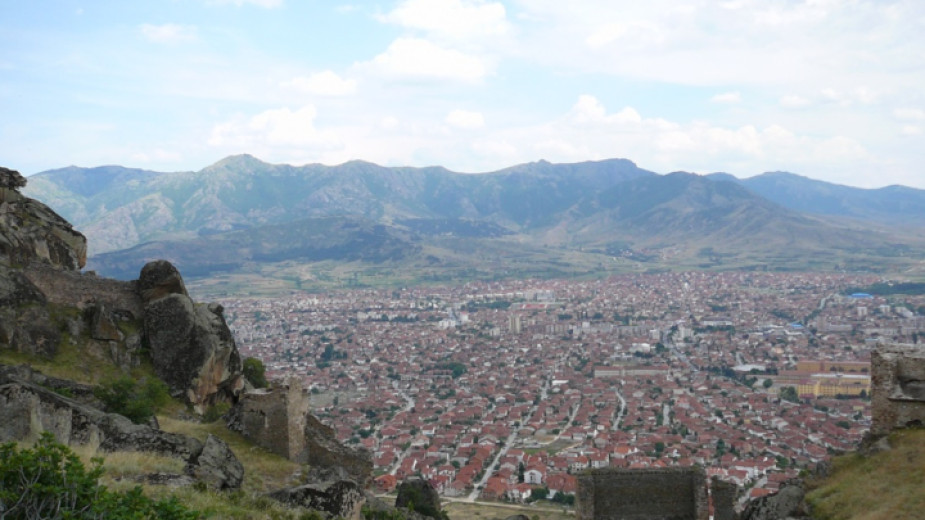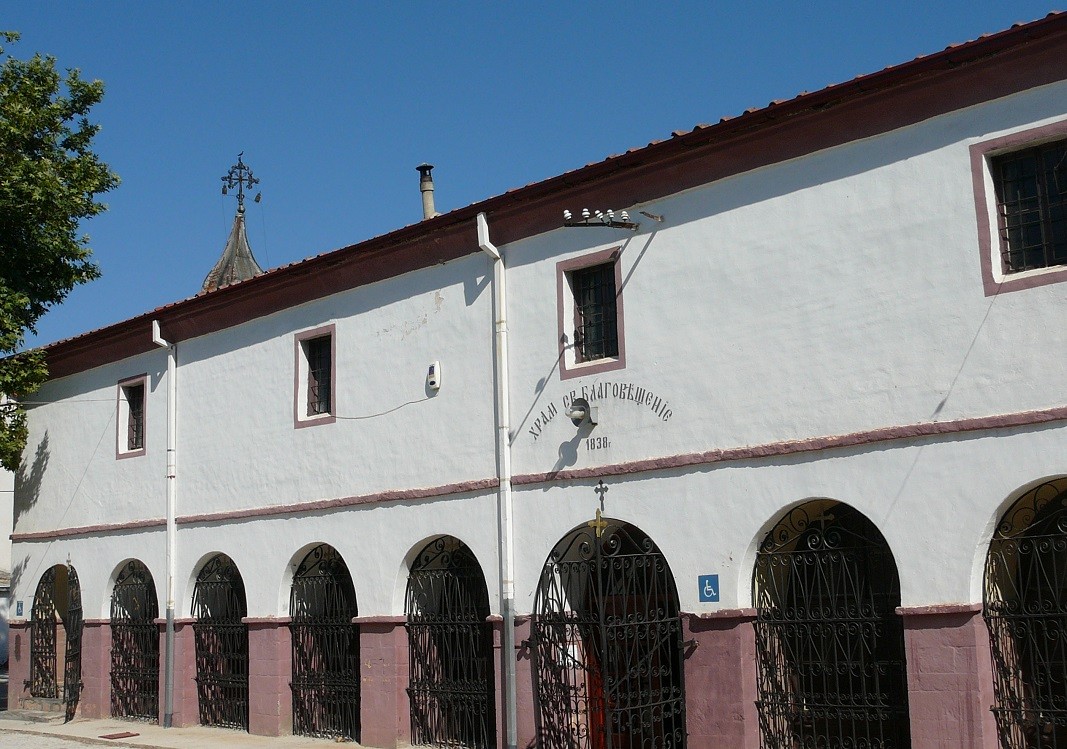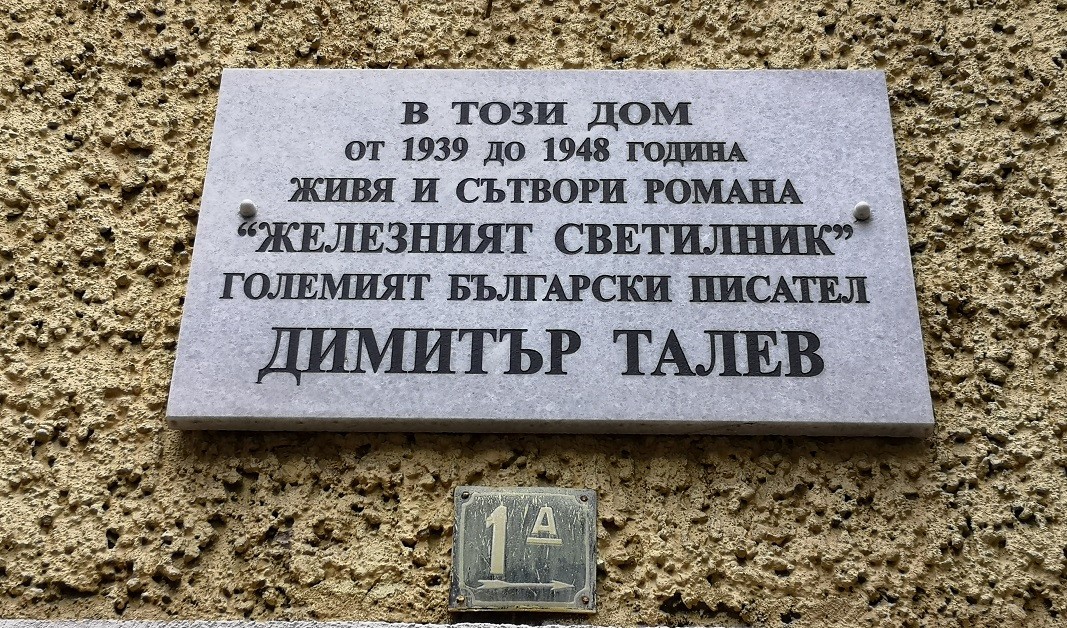 10
10
Around September 1, when the birthday anniversary of renowned Bulgarian writer Dimitar Talev is marked, Bulgarian media raised the question of the fate of his home in the city of Prilep, North Macedonia.

"Radio Bulgaria" searched for the opinion of journalist Vladimir Perev from the Republic of North Macedonia about Talev's legacy in the country these days. Perev was born in Prilep 77 years ago and although he grew up and lived during Tito's Yugoslavia, he never gave up his Bulgarian roots. He says that the Bulgarian cultural heritage in the city is not limited just to Talev’s house:

"I think that time will open new processes and that certain cultural and historical figures, representative of the Bulgarian national spirit in Macedonia and in Prilep, in particular, will be protected. The issue could be resolved bilaterally. But I want to say that when talking about Talev's house, people often ignore the fact that it is located 100 meters away from the Church of the Holy Annunciation, a cultural and historical monument of the Bulgarian cause in Macedonia and a Bulgarian church since 1834. The houses of Todor Kusev (Metropolitan Methodius Starozagorski, a zealous defender of Bulgarians in Macedonia) and of Bulgarian Foreign Minister Ivan Bashev are also near Talev's house. The first Bulgarian school is also located here, in the church yard. The ossuary of the heroes of World War I is also here."

The citizen of Prilep shares various ideas on how Talev's home can be used as a Bulgarian cultural center. We asked him how people would react to the name of Talev today, as the writer just like many Macedonian Bulgarians, was declared a fascist after 1944?!
Some 5 years ago Dimitar Talev was absolutely unknown in North Macedonia, except for a handful of people who deal with literature professionally, Perev says. But his name and work were preserved in the ancestral memory of the older citizens of Prilep, together with the names of many prominent Macedonian Bulgarians from the city. With a sigh the journalist says it is difficult for him to say whether Talev's novels should be translated according to the modern literary norms in the country.
"This is a difficult question for a person like me who can read in four Balkan languages: Serbian, Croatian, Bulgarian and Macedonian and who knows well the literature of these countries,” Vladimir Perev points out. “When someone like me reads Dimitar Talev’s works, they understand them well. People say Talev was a master of the Bulgarian language, but he was in favor of western dialects. I don't know, I don't have a position."

In 1944, Talev was aware that Bulgaria and Macedonia were about to be divided again. As a bridge to connect the two parts of the homeland, he started writing the novel "The Iron Candlestick". Chapters of the book were first published in the "Zora" newspaper, where he worked together with the literary critic Yordan Badev, as well as the Prilep-born chief editor of the paper and prominent Bulgarian journalist Danail Krapchev.
"My first thought is about the Zora newspaper, Danail Krapchev and my mother's uncle Yordan Badev,” the journalist continues his story. “Then comes ‘The Iron Candlestick’ and ‘I Hear Your Voices’. But when Dimitar Talev is mentioned, as well as the memory of other prominent citizens of Prilep from his time, one also thinks of the Holy Annunciation church in the city. Its iconostasis was also made here."
Citizens of Prilep like Vladimir Perev hope that the memory of these Bulgarian historical places and figures would be preserved.
English: Alexander Markov
Photos: Ivo Ivanov, libraryThe so-called Seal of Biliteracy was created in 2011 in the US state of California with the idea that in the conditions of a globalized economy and relationships, it is not possible for a person to develop their full potential by..
Fertility Europe , the pan-European organization that represents patient associations focused on infertility issues, has announced the start of the 9 th European Fertility Week 2025, 3-9 November. The campaign is taking place throughout Europe..
Today, in the Radio Bulgaria studio, we welcomed Helmut Matt – a writer, radio journalist and poet, who has maintained a special connection with Bulgaria for many years. In his book "Bulgarian Impressions" and in his numerous radio broadcasts, he..
On November 8 in Hall 11 of the National Palace of Culture, Bulgaria’s best masters and artisans will be awarded for the third time. The founder and..
Fertility Europe , the pan-European organization that represents patient associations focused on infertility issues, has announced the start of the 9..
Today, in the Radio Bulgaria studio, we welcomed Helmut Matt – a writer, radio journalist and poet, who has maintained a special connection with Bulgaria..

+359 2 9336 661
